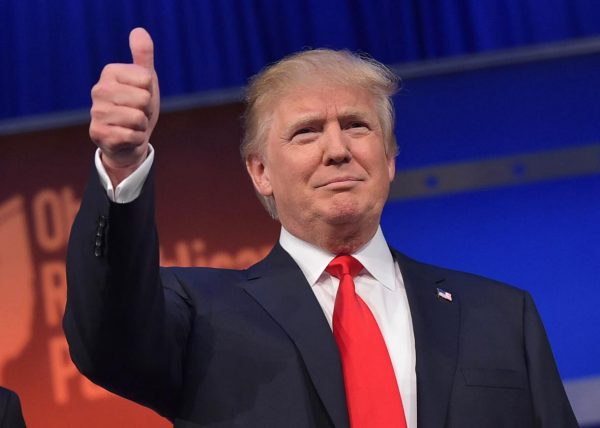
It is said when America sneezes, the whole world catches a cold. When former US president Barack Obama’s administration resolved to join 193 other nations in ratifying the Paris Accord under which they committed to cutting greenhouse gas emissions, the move was hailed as a historic turning point in the goal of reducing global warming. Now his successor Donald Trump is threatening to undo it all.
environment By Chipo Masara

True to his election promises, Trump seems to be seeking to undo all of what he called Obama’s “stupid” policies, and high on his priority list seems to be his predecessor’s climate change policy.
In his fight to curb climate change, Obama ensured that the US — the world’s second biggest polluter, after China — made a formal legally-binding pledge under the Paris Accord to cut emissions, committing to submit plans detailing actions to limit global warming over the coming decade. In line with the resolution, his administration had put in place the Clean Power Plan, which was devised to shut down hundreds of heavily polluting coal-fired power plants in the US, as well as to freeze construction of new coal plants in a bid to replace them with vast wind and solar farms, among other measures.
In direct contrast, Trump has come in guns blazing, declaring: “We are going to save the coal industry. We are going to save that coal industry believe me…my administration is putting an end on the war on coal.”
In what has come to be referred to as “the Clexit” (US’s exit from the UN Paris agreement), Trump has since released a proposed budget that will eliminate climate change research and prevention programmes, as well as slashing the Environmental Protection Agency’s budget and ordering it to withdraw and re-write Obama’s climate change regulations.
While experts in environmental law believe it would not be easily possible for Trump to roll back Obama’s climate change regulations, the attempts at policy reversals are a clear indication the current US president doesn’t have the slightest intention to follow through with Obama’s formal pledges under the Paris Agreement. Instead, he has every intention of ensuring that the US remains a coal country. The production of fossil fuels accounts for 80% of the US’s man-made greenhouse gas emissions and the country is one place down from being the world’s biggest emitter. The greenhouse gases have been blamed for the climate change scourge that is currently bedevilling especially developing nations — that have contributed the least towards the calamity.
For the African continent for instance, climate change isn’t simply an academic issue. It has become a painful reality many have had to live with. There is strong evidence that warming in Africa has intensified significantly over the past 50 years, greatly impacting the livelihoods, health and food security of the people on the continent. Over the years, the continent has experienced extreme weather events that included droughts, floods and heat waves, with even worse weather occurrences anticipated in future. Environmental challenges that include desertification, deforestation, soil erosion, rising sea levels and depleting fish stocks, have over the past few years also become synonymous with Africa.
- Chamisa under fire over US$120K donation
- Mavhunga puts DeMbare into Chibuku quarterfinals
- Pension funds bet on Cabora Bassa oilfields
- Councils defy govt fire tender directive
Keep Reading
African countries like Zimbabwe — whose economies are in the intensive care unit — have had to bear the brunt of the adverse effects of climate change much harder than most countries. Owing to lack of funds, Zimbabwe greatly lags behind in terms of putting in place measures to mitigate and adapt to climate change. In fact, the country falls under the least developed countries that are extremely vulnerable to climate change owing to the incapacity to respond effectively to climate change impacts.
Recently, the country was caught unawares by tropical cyclone Dineo-induced floods that resulted in many deaths and washed away many homes, especially those in low-lying areas. Months later, many of those that lost their homes and property to the floods are still staying in makeshift camps awaiting the long-coming government assistance to help them get their lives back on track. For its part, the broke Zimbabwean government has since called it a humanitarian crisis, opening the way for relief organisations to come in and help.
African countries that ratified the Paris Agreement left the convention feeling triumphant as finally, there appeared in place a resolution for polluting nations like the US to pay. The Green Climate Fund initiative, under which developed countries agreed to jointly provide $100 billion annually to developing nations by 2020 for mitigation and adaptation, was hailed.
Obama’s stance against the continued use of fossil fuels had stirred the world towards moving to progressive renewable energy sources. However, the pro-coal message by Trump is bound to confuse things and take the world backwards in the fight against climate change. If that happens, countries like Zimbabwe will continue to bear the brunt of a catastrophe they did very little to bring about.
Feedback: [email protected] or [email protected]











